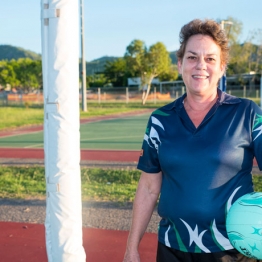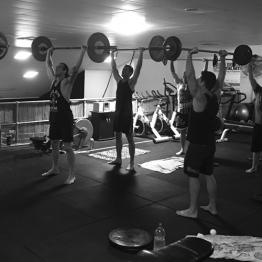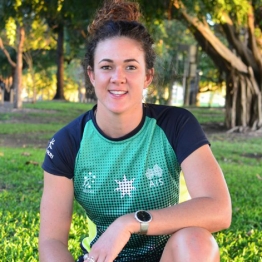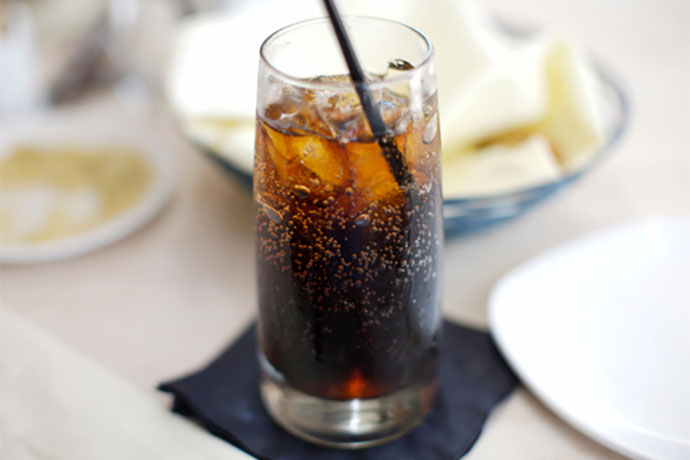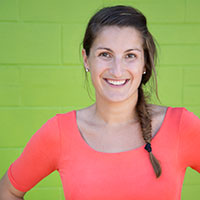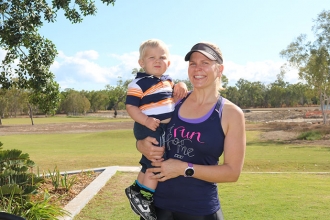TheGo asks our local, qualified and respected nutritionists a question that has been puzzling you. Thanks to a reader who sent in this question about the fizzy stuff many of us turn to as a 3pm pick-me-up: Are diet soft drinks better than regular soft drinks, or should they be avoided all together?
If you have a food query for our expert panel to answer, please email [email protected].

Mitch Smith – Health Management
Ten years ago we cut out fat because it was seen to be ‘toxic’ and instead we increased the amount of sugar we were consuming. Now we are cutting out sugar and replacing it with artificial sweeteners – does anyone smell a rat?
Food trends come and go as quick as Vanilla Ice’s music career. We may even see protein as the next culprit on the chopping block, or it could even be vegetables… who knows what the future will bring…
The biggest thing to focus on is portion size. If you have less than two cans of regular soft drink a week, then don’t sweat it and stick to the regular (hard) stuff. The same goes for diet soft drink. I never recommend that people consume diet soft drink, but if it’s a way of reducing their total sugar, and therefore calorie, intake then I’m all for it. Hell, I even enjoy a can of Coke Zero once or twice a week with a chicken sandwich for lunch and I don’t feel bad one bit!
Bottom line: Keep with the one you enjoy most, but don’t have any more than two cans a week and you will be laughing all the way to the doc!
About Mitch Smith
Health Management
As an accredited dietitian and accredited sports dietitian; it’s Mitch’s mission to debunk as many nutrition myths as possible. He works with elite professional athletes from a range of sports such as triathlon, body building and football, as well as the Cairns Taipans NBL team (don’t hold that against him!). Mitch has a passion for helping men lose weight and get fit and healthy. He practises what he preaches and translates complicated nutritional jargon into easy-to-understand advice. Mitch has just completed his first Half Ironman in Cairns.

Hannah Gentile – Eat Well Australia
Diet soft drinks are assumed to be a good option for people wanting to monitor calories and sugar levels. But studies on these products are conflicting.
Some have shown that artificial sweeteners can actually increase blood sugar levels, perhaps confusing our regulatory mechanism. Others show that, regardless of the type of soft drink you choose, you are still 50% more likely to be overweight and suffer from type II diabetes. This may be due to artificial sweeteners changing gut bacteria, metabolic function, and the way we process fat.
The criticism of these findings is that they tend to be observational with no randomised control group, and in animal trials rather than human, so they may not be translatable to every person and situation. Moreover, there are also studies showing diet soft drinks do help in weight control.
The bottom line is the shared ingredients of diet and regular soft drinks, mainly caffeine and other additives, probably do the most damage. Reactions such as headaches and heart palpitations make you think twice about what these ingredients may be doing to a person’s body.
Would I drink any soft drink? No. We are much better off drinking water or herbal tea which rehydrate us with no side effects.
About Hannah Gentile
Eat Well Australia
Hannah Gentile has a Masters of Nutrition from Deakin University. She has spent the past 10 years working in the fields of behavioural science, health, and nutrition with women and children across New Zealand and Australia. Hannah decided to focus her nutritional background on women and children after experiencing a high-risk pregnancy. Addressing the need for good quality information, especially for mothers, Hannah is determined to provide a service women can turn to during the most important stages of their life.
Brie Salagaras – Compleat Nutrition
The reality is that neither has any nutritional benefits for the average person, regardless if they contain sugar or are sugar free.
Excess sugar consumption is linked to excess caloric intake, which – long term – leads to obesity, which has a direct relationship with increased incidence of disease. On the other hand, sugar-free soft drinks have, in recent years, been implicated as disease-causing agents.
Over the past decade Food Standards Australia New Zealand has done multiple studies regarding the safety of sweeteners such as Aspartame. They have concluded every year that the Acceptable Daily Limit (ADL) of Aspartame is 40mg/kg body weight (equivalent to drinking 19 cans a day). In addition, studies done in rats have shown that there’s no greater risk of developing cancer – nor will life expectancy be shortened – from Aspartame consumption.
When we crave sweet products like soft drinks it’s our body’s way of saying we are lacking something else; perhaps we are dehydrated? When we become dehydrated we often become fatigued and our bodies associate sweet products like soft drink with being a quick method of refuelling our energy stores. I don’t know about you, but given that regular or diet soft drink has no nutritional benefit, why wouldn’t we just drink water?
About Brie Salagaras
Compleat Nutrition
Brie has studied a Bachelor of Health and Exercise Science, Masters of Nutrition and Dietetics and a Certificate of Diabetes Education. She is currently completing another masters degree in Exercise Physiology Chronic Disease Rehabilitation. Brie is a strong advocate for a holistic approach to a healthy living and incorporating both a healthy diet and exercise into each and every day.
The information provided is general in nature and should not substitute any health or medical advice. Please consult a qualified professional to assist with any specific conditions or queries. The opinions expressed as those of the individual columnists. You know the drill…

